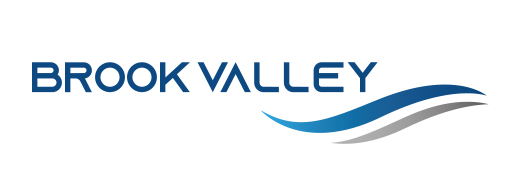
Brook Valley Online 2.0.
„We are more than an extended workbench – that’s what sets us apart from other markets“
In the last interview, we reported on the fact that a professional IT and digital scene has developed in South Africa, which German companies have not yet identified as a sourcing potential. In the new episode, Felix Finger, Managing Partner of Brook Valley, talks to Anthony Robinson, Executive Chairman of technology and IT consultancy Saratoga in Cape Town, about specialization, the roots of entrepreneurship in the IT and digial scene and the differences to other markets.
Felix Finger: Software developers, UI/UX specialists and data science – these are the strengths of the South African IT and digital scene. We learned that in our last interview. Anthony, does that also describe your perspective?
Anthony Robinson: For all these topics you can certainly find excellent people here in the main urban centres such as Cape Town and Johannesburg. But I’m not sure I would see this specialization as our strength. Especially in differentiation with other IT markets. I don’t think we have carved out such clear niches. I see much more that we have above all great generalists – who not only implement the specifications of large companies as an extended workbench, but who are really in a position to develop their own ideas, to drive them forward, and to offer real advice to their customers. We have a very entrepreneurial attitude here, which clearly distinguishes us from traditional supplier markets such as India or Southeast Asia. That is our great asset.
‘Generalist because of the European-influenced university education’, that confirms a statement from our last Brook Valley talk. We have also already heard ‚entrepreneurial‘. Why is entrepreneurship particularly strong in South Africa?
Anthony Robinson: We are still children of the apartheid era. It was a hard time. The country was economically isolated, and many suffered real privation. Only those who had good ideas and who drove hard to translate them into factual action were able to prevail. That is one reason for the entrepreneurial attitude of today’s generation. But I can also give a personal example: I was fortunate to enjoy the excellent education offered here by our top universities, and was a freshly graduated engineer. After graduation, however, I could do very little with my area of specialisation, because what I could offer was not in demand. So I became a software developer. In the beginning I rather struggled through, and I think that is the story with many South Africans. It required a whole generation to be adaptable and find solutions on their own. All of this makes us massively entrepreneurial. We think of the world differently than classic IT and digital scenes in emerging markets.
Despite an unemployment rate of more than 35 percent in South Africa, you also complain about a shortage of skilled workers. How does that work together?
Anthony Robinson: South Africa is a complex country – in every respect. I’ve already explained part of the complexity. Even today, we basically have something like a ‚first world‘ and a ‚third world‘ economy. The levels are drastically different. Of course, the IT scene is at the first-world level, if you want to put it that way. We don’t have an academization rate at 100%. If you want to succeed here, you have to be really smart and often overcome real adversity. That applies especially to lateral entrants who often couldn’t attend one of the excellent universities. Those with the right skills are in very high demand. The ‚war for talent‘ has been going on here for a long time. Even if large parts of the world do not focus so much on South Africa in this context.
A similar culture, the same time zone – why don’t they? What keeps countries like Germany from working more closely with South Africa?
Anthony Robinson: Well, I think basically nothing at all. Maybe South Africa is not part of the relevant IT market for Germany yet. I think that we just have more historical economic connections with the English-speaking countries, especially the United Kingdom. Cooperation with the U.S. is also strong, although the time differences doesnt make it any easier. And perhaps currently too little is known in the German market about innovations our digital scene has already produced
What are they?
Anthony Robinson: Industry-wise, we’re very strong here in FinTech – very mature, very innovative. Elon Musk grew up in South Africa and there are core ideas implemented at PayPal that I recognize as coming from here. We are world-leaders in mobile money, bigger than M-Pesa by transaction value and number of customers. We also have shown global leadership in areas such as DeFi (‚Decentralized Finance‘). We are surprised that Germany is sometimes behind us in FinTech. But of course, we are also active in many other industries.
What needs to happen to make German industry more aware of the opportunities in South Africa?
Anthony Robinson: Spread the word: We South Africans don’t just have IT and digital experts who implement. We have excellent generalists who can consult on an equal footing in the same time zone – and thus become part of international development teams. We have excellent, generalist training programs. We have a good, so far quite stable price level. And culturally, we equal Europeans in many ways. We are significantly smaller than India and other markets, but that is part of our charm. We can engage very intensively with our customers.
About Brook Valley:
Brook Valley supports in scaling digital business models. The core of our work is searching, finding and integrating teams.
Because they are convinced that digital business models will shape the future core business of all companies. In this context, they see combination of internal teams with in-depth business know-how and additive external digital experts as the basis of a sustainable transformation.
About Saratoga:
Saratoga is an outsourcing software development partner for international organisations.
For more information, visit: https://www.saratoga.co.za/.
